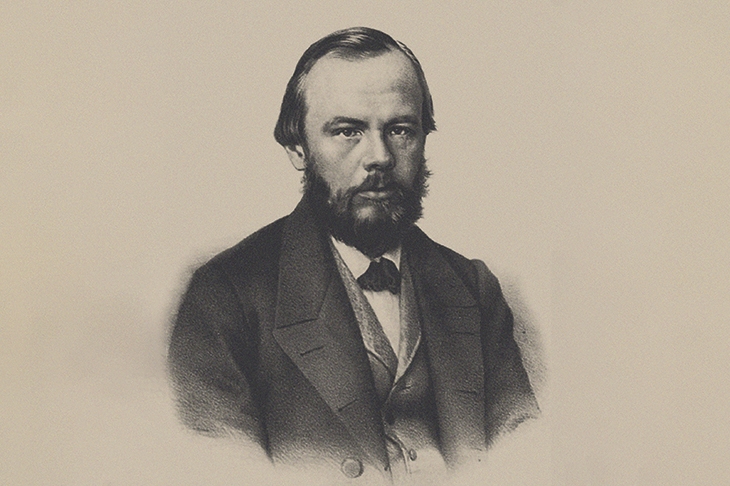A death sentence, prison in Siberia, and chronic epilepsy. The death of his young children, a gambling addiction, and possible manic depression. Few writers endure such dark lives or possess such bright creativity as Fyodor Dostoevsky.
His incomparable experiences inform many of his novels’ most powerful scenes, from accounts of innocent suffering and crazed revolutionaries to nightmarish epileptic fits. He intended to reflect on his traumatic life by writing a memoir but, aged 59, he died of a pulmonary haemorrhage.
In 1867, Dostoevsky had four months to write two novels (which amounted to 752 pages)
Noting this literary vacuum, Alex Christofi challenges himself to write a sort of third-person memoir for Dostoevsky. Examining the author’s letters, notebooks, and journals — as well as the leading secondary sources — Christofi attempts a profile of the writer which interweaves his biography with his novels. When he describes Dostoevsky the political prisoner, and his last moments before facing the Tsar’s executioners, Christofi quotes Prince Myshkin’s story of the firing squad from The Idiot. His chapter on Dostoevsky’s internment in a forced-labour camp draws heavily on the semi-autobiographical Notes from the House of the Dead. Such personal tragedies help explain Dostoevsky’s singular novelistic focus on the deep recesses of the human mind. He was, said Nietzsche, ‘the only psychologist from whom I have anything to learn’.
Dostoevsky’s turbulent life didn’t just provide material for his fiction; it also raised the stakes. The author, who regularly went on destructive gambling sprees, was constantly on the precipice of financial ruin. On one occasion, he had to pawn his lover’s watch so he could return to his estranged and dying first wife. Whereas Ivan Turgenev and Leo Tolstoy could write in peace, Dostoevsky was forever rushing his work so the proceeds would appease his rapacious editor, the creditor who threatened him with debtors’ prison, or the pawnbroker who had his wedding rings. In 1867, he had four months to fulfil contractual obligations to write two novels (which amounted to 752 pages). As he wrote in a letter: ‘The very thought of it would kill Turgenev.’ He was saved by a 20-year-old stenographer, Anna, whom he’d later marry. Dictating and working nocturnally, Dostoevsky submitted The Gambler with two hours to spare.
Compounding his stressful existence was the sickness that surrounded and engulfed him. Epilepsy crippled his body and strained his relationships. A fit on the night of his first wedding foreshadowed a troubled marriage with the consumptive widow, Maria. His second wife, Anna, nearly died of a throat infection; their first daughter, Sonya, didn’t reach her first birthday; and three-year-old Alyosha — who would be commemorated through the hero of The Brothers Karamazov — died after a 12-hour epileptic fit.
Christofi includes vivid details of the author’s destitution: the seizures, the convulsions, the foaming mouth; how for days while he was writing Crime and Punishment he lived only on tea; how he covered the holes in his boots with ink. He succeeds in conveying Dostoevsky’s (often self-inflicted) hardship. Yet there are omissions in this short book. The zealous faith and the vigorous theology of the novels are routinely underplayed.
Despite ostensibly focusing on Dostoevsky’s loves, the book lacks a thread to connect its narrative. In his author’s note, Christofi admits he ‘cheerfully commits an academic fallacy, which is to elide Dostoevsky’s autobiographical fiction with his fantastical life in the hope of creating the effect of a reconstructed memoir’. The trouble is, Dostoevsky in Love feels reconstructed, more a masterpiece of cut and paste than of creative nonfiction. Christofi’s conceit generates a skeletal biography fleshed with quotation.
Newcomers to Dostoevsky will gain a potted biography of a striking figure, but need greater content and context to appreciate his writing. Those familiar with the author may enjoy the ride, but they’ll learn little. Christofi’s innovative approach might be laudable, but the book reads more like one of Dostoevsky’s experimental short stories than one of his great novels.






Comments